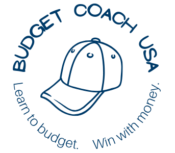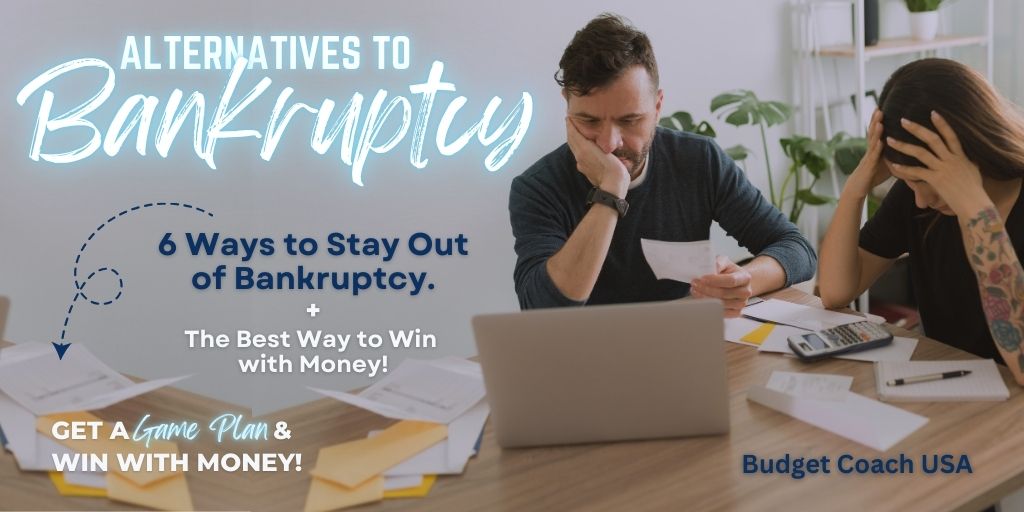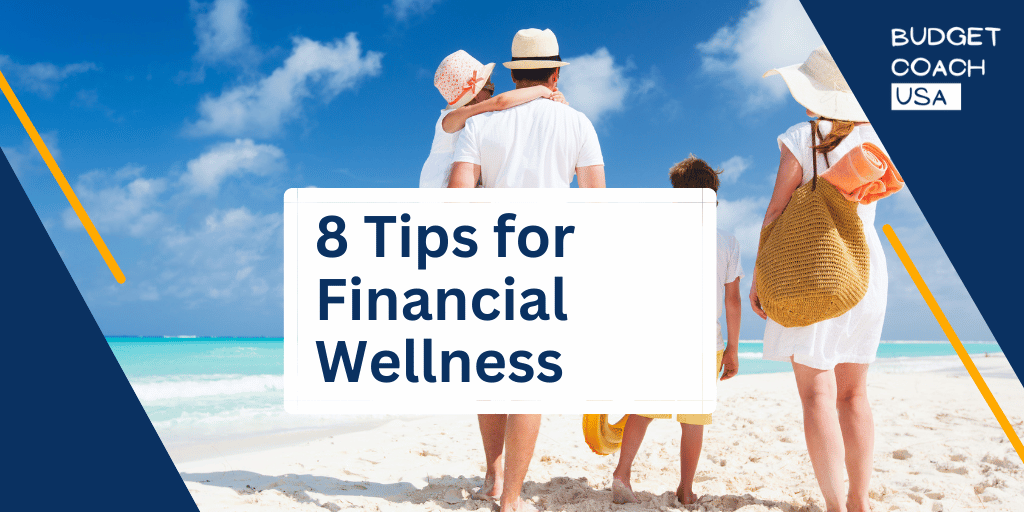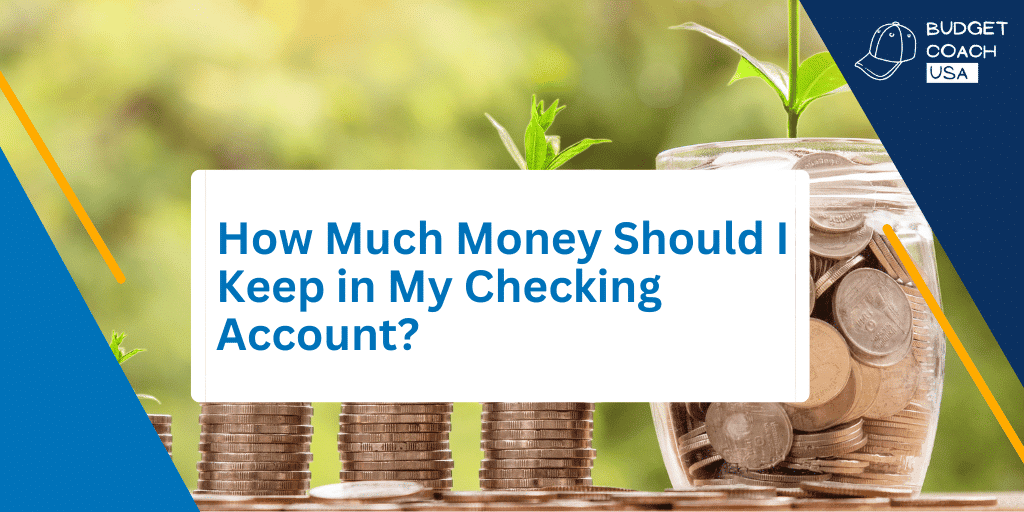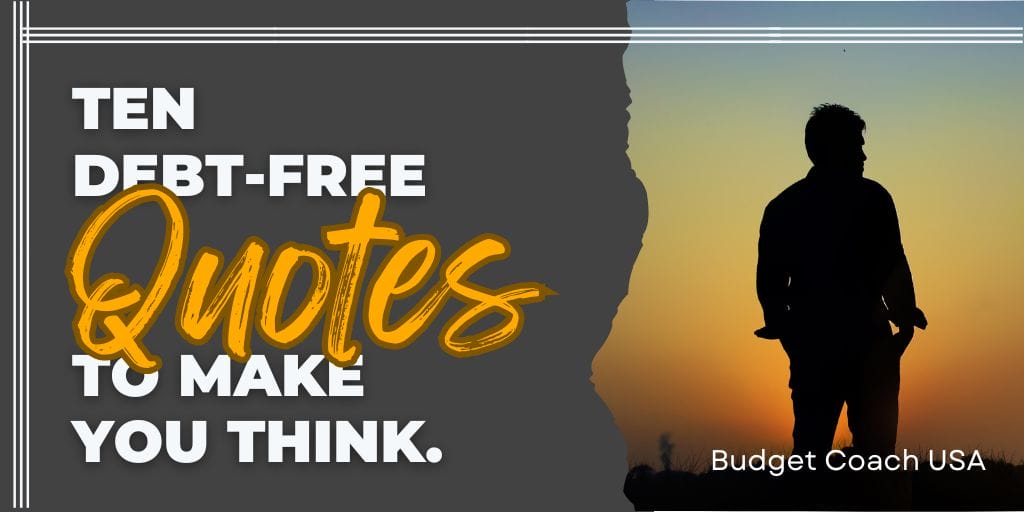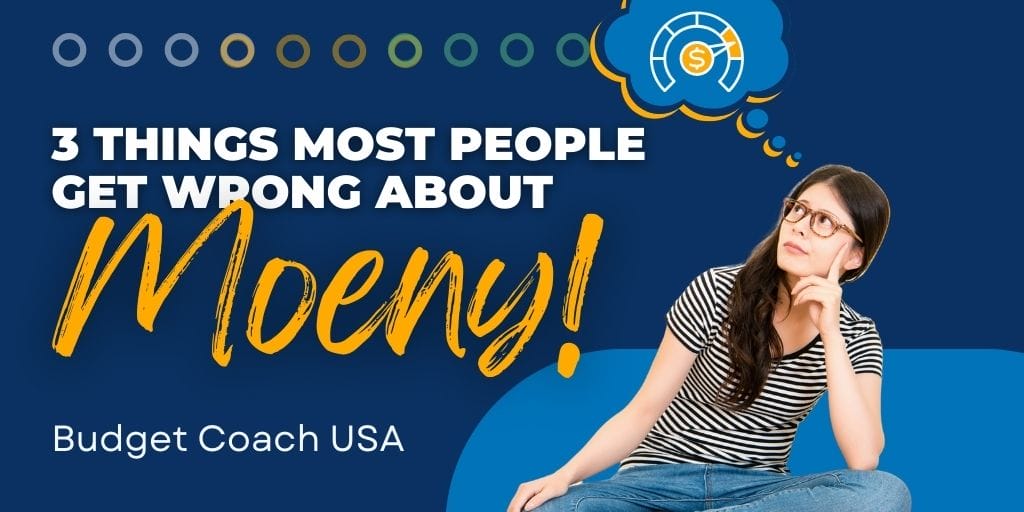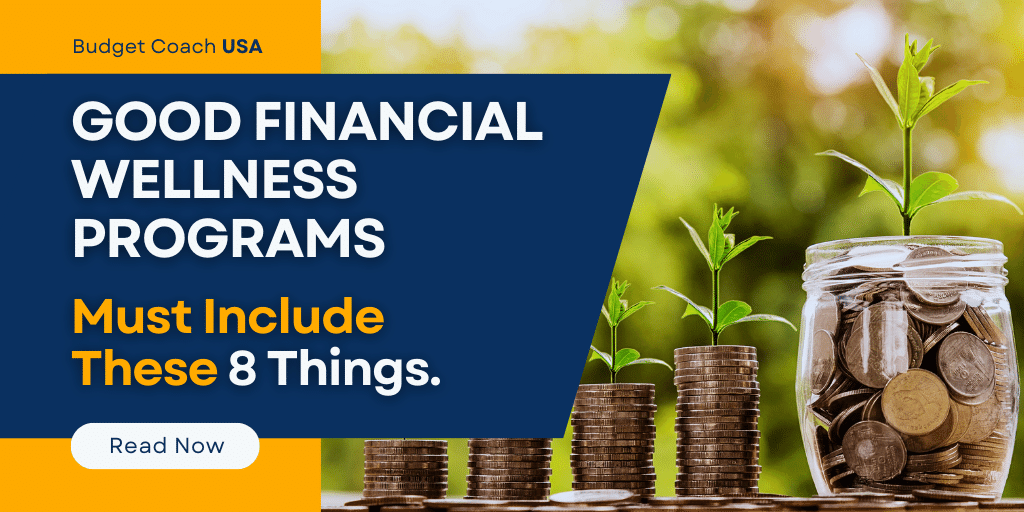Are you looking for alternatives to bankruptcy? You are not alone. Bankruptcy is not a fast or easy process and should not be entered into without exhausting available alternatives first. Moreover, while bankruptcy may provide the financial relief you are seeking, the emotional toll and reputation damages linger for years. On top of that, certain types of debt are not bankruptable such as federally insured student loans, secured debts (like cars and homes), and most tax debt. So if you are looking for a quick fix, bankruptcy isn’t necessarily the answer. The good news is, there are many alternatives to bankruptcy that can help stabilize your life going forward. We’ve listed several alternatives here and highlighted our best alternative to bankruptcy (and the best way to win with money) at the bottom. They are not necessarily easy, but then, neither is bankruptcy!
6 Alternatives to Bankruptcy
When reviewing these alternatives to bankruptcy, keep in mind that a single answer isn’t necessarily the best option. Ultimately, to avoid bankruptcy you need either a reduction in your debts or an increase in your income. We call this creating more “margin” in your monthly cash flow. With enough margin, you can begin to meet your credit card payment obligations while also providing for your daily living needs.
1. Get Credit Counseling
Credit Counseling is a popular alternative to bankruptcy because it is essentially, one-stop shopping. Credit counseling is a service that provides financial education, credit analysis, and budget guidance to help people manage their debt. Counselors are trained professionals who can help you develop a personalized plan to address your financial situation. Sometimes credit counseling services lump in debt consolidation as a service. Other times, you may simply get guidance on how to organize your income for success and create more margin in your monthly cash flow.
Here are some things a credit counselor can help with:
- Budgeting: Create a budget that helps you manage your money
- Debt management: Develop a plan to manage your debt
- Financial education: Learn about credit and how to manage debt
Credit counseling can be a successful alternative to bankruptcy. Credit counseling organizations are usually non-profit and their counselors are certified. The first session with a credit counselor is often free. However, it is important to familiarize yourself with the exact terms and services of any credit counseling service before committing. The reputation of any service can vary. Completing your due diligence is necessary if you don’t want to end up with bigger problems in the end.
Pros: Credit Counseling often focuses on improving your financial management skills and education. This can lead to permanent and positive change for many people.
Cons: Not all credit Counseling services are the same. Check references and understand exactly what you are signing up for before committing. While credit Counseling can help solve your troubles it is often only temporary. If you do not learn how to make permanent changes in your money management habits.
2. Negotiate Directly with Your Creditors
Depending on the type of debt you have, you may be able to negotiate directly with your creditor for more favorable terms. Let them know that you intend to pay back every dollar they are owed but that you need some adjustments in the payment terms to be successful. While many creditors will not be excited to hear from you directly, emphasizing that you do want to make good on your debt, may help bring them to the table. If you do strike a deal with your creditor, be sure to get the details in writing and sign accordingly.
Pros: A more personal approach anchored to your sweat equity is always best if possible.
Cons: Many Creditors may be unwilling to talk directly with you. They may only respond to consolidation services or other professional intermediaries.
3. Seek Loan Modifications
Loan modifications are formal changes to an existing loan usually based on established lender practices. An example of a loan modification may be a reduction in interest rate or fee structure. It could also be an extension of the repayment term. Loan modifications can be an effective alternative to bankruptcy as they may result in enough margin in your monthly cash flow to make repayment of the loan possible. While loan modifications are an available tool to help you work through your troubles, they don’t necessarily address the underlying issues that led to your troubles to begin with.
Pros: If loan modifications help you meet your obligations and avoid bankruptcy, it is a good thing.
Cons: Simply using a loan modification to create more margin in your monthly cash flow, doesn’t necessarily address the root money management issues to led to your struggles.
4. Consolidate Your Debt
Debt consolidation is a common go-to for people seeking alternatives to bankruptcy because the lender often makes more money on an extended repayment term that results from consolidation. For this reason, debt consolidation is a pretty easy option to pursue in many circumstances. However, once again, consolidating your loans might provide temporary relief but does it really address underlying issues?
There are some circumstances in which you can consolidate your debt on your own, however most times it requires the services of a “debt relief” service that specializes in negotiation on your behalf. This is sometimes also called credit counseling. When the process is complete, you make a single monthly payment to the debt relief agency that in turn pays your bills for you at the negotiated rate. However, some debt relief services have a poor reputation that can put you in even worse shape if they fail to perform as agreed. Choose wisely.
Pros: Debt consolidation can be a quick and easy strategy to avoid bankruptcy if you are swimming in credit card debt that only requires a single monthly sum payment to the debt relief service you choose.
Cons: Consolidating your debt may only be a temporary fix because it doesn’t, on its own, address underlying issues and some debt relief services are not trustworthy so choose wisely.

5. Sell Everything Possible & Increase Your Income.
Remember, the key to paying your credit card debt is creating more margin in your monthly cash flow. So far, we’ve discussed ways to reduce your debt obligations, but what happens if you increase your income? Actually; the same thing…more margin! The difference is when you increase your income, sell things, and or take on a side hustle to pay off your debt you get the dignity of standing up to the problem and winning.
If you find yourself swimming in credit card debt and looking for alternatives act quickly. Sell as much stuff as you can and or take on a side hustle to increase your income. Don’t over-think things at this point. If you are swimming in credit card debt and looking for alternatives to bankruptcy you are probably already experiencing a lot of stress. A great way to reduce that stress is to bring more money into your household so you can meet your obligations. And an added benefit comes from achieving success in solving your problem with a lot of elbow grease and hard work.
Pros: You get the dignity of facing your problems head-on and solving them yourself through hard work and commitment.
Cons: It is harder, but worth the effort!
6. The Best Alternative to Avoid Bankruptcy: Zero-Based Budgeting
Ultimately, the best alternative to bankruptcy and the best way to win with money is to learn how to budget monthly and make your money behave. Most people who are struggling financially really don’t have a true idea of exactly how much money they bring in, exactly where it all goes, and consequently, how much margin they actually have. This is where a zero-based budget comes in. Zero-based budgets shine a light on all of your income and expenses.
By writing down ALL of your income and ALL of your expenses at the beginning of each month you have the opportunity to adjust your behavior with money and begin aiming your money toward your most important priorities. In this case, your debt. Just making a zero-based budget won’t guarantee success. You have to follow it and learn how to say “no” to unbudgeted expenses. We refer to this as “making your money behave”.
We have a bunch of resources on zero-based budgeting in this blog but if you are looking for a place to start try our post on how to make a budget and stick to it.
Pros: Learning how to make a budget and developing the skill to stick to it is the beginning point of financial peace of mind and making sure that you never end of looking for alternatives to bankruptcy ever again. A zero-based budget is the pillar of financial success!
Cons: None! Nada! Submitting your financial life to a zero-based budget is the best alternative to ever facing bankruptcy again.

Alternatives to Bankruptcy Summerized
If you want alternatives to bankruptcy you have several options. Some options work with your creditors to reduce your payments or extend the terms. Others might even reduce your overall debt with the help of a credit counselor or debt relief services. However, these options provide only temporary relief as they do not address the underlying problems that led to your credit card debt to begin with.
Remember, creating more margin in your monthly cash flow is the key to meeting all of your obligations. The best way to create margin is to begin today learning how to budget every month, say “no” to unbudgeted expenses, and begin building new skills that address the underlying causes of your credit card debt. Budgeting every month reveals your shortfalls before they happen and helps you identify ways to compensate before problems arise.
If you are swimming in credit card debt there are no easy alternatives to bankruptcy. But the option that best leads to long-term success and builds skills to avoid the same problem in the future is learning how to budget and if necessary increase your income.
